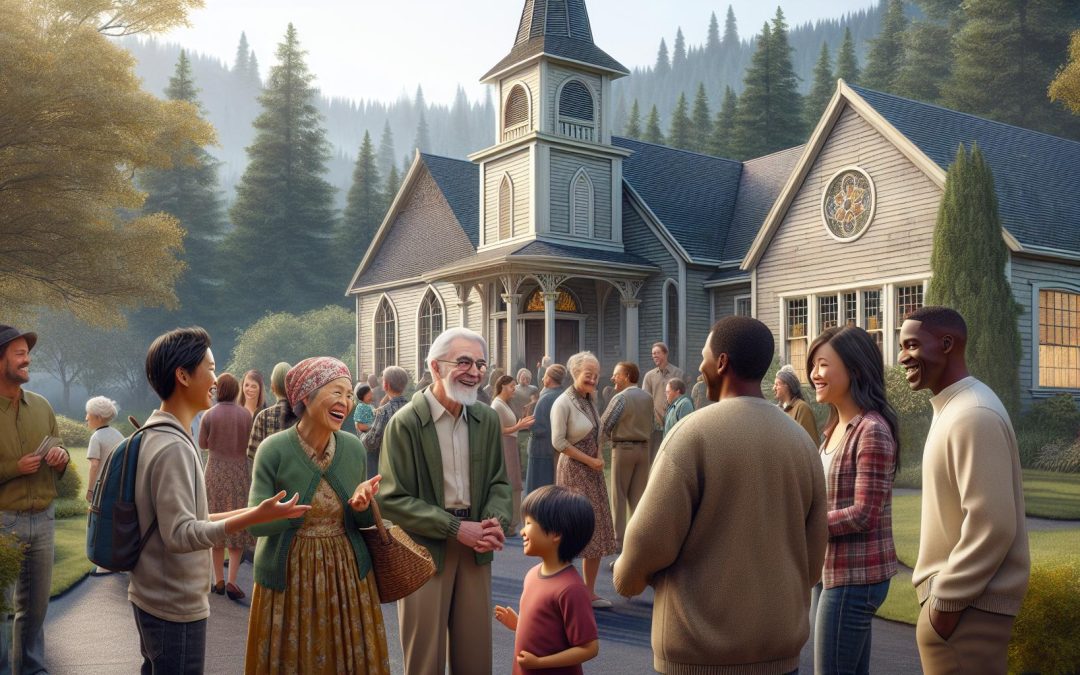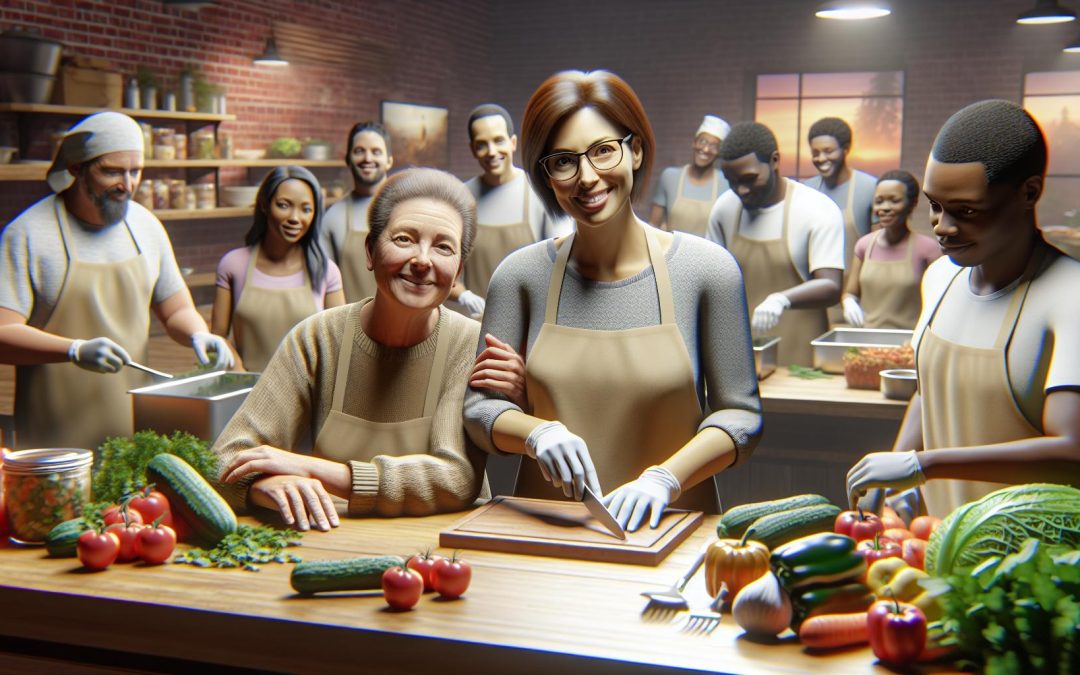Every year, Issaquah transforms into a vibrant tapestry of colors, sounds, and flavors as it celebrates its diverse range of religious festivals. As someone who calls this charming city home, I’ve always been fascinated by how these celebrations bring our community together, offering a glimpse into the rich cultural heritage that each festival represents. From the joyful lights of Diwali to the solemn reflections of Yom Kippur, there’s something truly magical about witnessing these traditions unfold right in our backyard.
What I love most about these festivals is the way they invite everyone to learn and participate, regardless of their own beliefs. It’s not just about observing; it’s about engaging in meaningful exchanges with friends and neighbors, deepening our understanding of one another. In a world that sometimes feels divided, these celebrations in Issaquah remind us of the beauty in diversity and the strength that comes from unity.
Overview of Religious Diversity in Issaquah
Issaquah, nestled in the Pacific Northwest, boasts a colorful mosaic of religious beliefs. Throughout my time exploring the community, I’ve found that this diversity is a source of strength and enrichment. Various faith groups coexist, creating a tapestry of traditions and practices that enrich the town’s cultural fabric.
In Issaquah, you’ll find a range of religious communities. Christians gather in numerous denominations such as Catholic, Protestant, and Orthodox. Each church contributes to the community’s vibrancy by hosting events, including services and outreach programs. Several Buddhist centers provide meditation sessions and classes, helping followers deepen their spiritual practices while inviting newcomers to explore mindfulness.
Muslims in Issaquah have a place of worship in mosques where they practice prayers, celebrate Ramadan, and engage in community service. The Jewish community in Issaquah participates in rituals from Shabbat to Hanukkah, often opening doors to friends and neighbors to share in their traditions. Hindu and Sikh communities celebrate festivities like Diwali and Vaisakhi, offering those unfamiliar with the faith a chance to learn and participate.
A significant aspect of Issaquah’s religious diversity is the presence of interfaith activities. These collaborations promote understanding, peace, and mutual respect among different faiths. The events range from interfaith dialogues to community service projects that unite people with a common cause.
Attending these varied gatherings, I’ve witnessed first-hand how religious diversity fosters connections across cultural divides. It encourages active dialogue and exchanges enriched by differing viewpoints. People come together to foster a sense of belonging and community spirit, grounded in respect and inclusivity.
Issaquah’s religious diversity highlights its commitment to inclusivity and cultural celebration. Each faith community, through its unique practices and beliefs, contributes to a richer, more connected society. This openness and acceptance are the foundation for unity, reflecting the city’s respect for all paths of faith.
Major Religious Festivals in Issaquah
Issaquah embraces its rich cultural heritage through diverse religious celebrations. These vibrant festivals highlight the town’s commitment to unity and respect across differing beliefs.
Christmas Celebrations
Christmas in Issaquah is a time of joy and community. Streets and homes light up with decorations, creating a festive atmosphere. Local churches host services and events, welcoming everyone to experience the spirit of the season. At Issaquah’s annual tree lighting ceremony, families gather for carols, hot cocoa, and visits with Santa. This event fosters a sense of belonging and joy among participants of all ages. Additionally, many residents engage in charitable activities, reflecting the holiday’s message of giving and goodwill. Through various traditions, Christmas in Issaquah captures the warmth and togetherness synonymous with the holiday season.
Hanukkah Traditions
Hanukkah in Issaquah partners tradition with community spirit. Families and friends gather to light the menorah each night, recounting the story of the miraculous oil. Local synagogues host events, including dreidel games and latke-making sessions, inviting participation from both Jewish and non-Jewish community members. Public menorah lightings in community centers deepen cultural connections and provide opportunities for learning. These events emphasize the festival’s themes of perseverance and faith, while fostering an inclusive environment. Hanukkah in Issaquah serves not just as a celebration but as a bridge linking diverse traditions within the town.
Eid Festivities
Eid brings excitement and unity to Issaquah. The Muslim community celebrates Eid al-Fitr and Eid al-Adha with prayers at local mosques, followed by communal meals and festivities. These gatherings are attended by people of various faiths, encouraging cultural exchange and understanding. Community centers and parks hold events showcasing traditional foods, music, and games, offering a glimpse into the rich Islamic heritage. People also engage in acts of charity, reinforcing the festivals’ core values. Eid in Issaquah embodies joy and solidarity, showcasing how diverse members of the community come together in celebration.
Cultural Insights from Various Festivals
Diverse religious festivals in Issaquah offer rich cultural insights by showcasing unique customs and traditions. These events illuminate the community’s shared values and foster a deeper understanding of various faiths.
Community Involvement and Participation
Active participation in Issaquah’s religious festivals encourages community bonding and inclusion. For example, local residents, regardless of faith, join Diwali celebrations by enjoying traditional Indian food and vibrant dance performances. During Christmas, the city hosts events where everyone can engage in decorating public spaces and attending festive concerts, strengthening communal ties.
Similarly, Hanukkah brings together Jewish and non-Jewish residents through menorah lightings and cultural storytelling sessions. These inclusive events create opportunities for dialogue and learning, building bridges across diverse beliefs. Ramadan activities involve communal iftars, inviting people of all backgrounds to share in breaking the fast, which fosters a spirit of unity. I see participants drawn to these celebrations for their ability to offer a platform where everyone’s cultural heritage is valued and respected.
Impact on Local Culture and Economy
Festivals leave a lasting impression on Issaquah’s culture by highlighting its diversity and promoting multiculturalism. Each event enriches the town’s cultural tapestry, leading to a more inclusive and harmonious environment. Children and adults alike are educated about global traditions through festival-related workshops and exhibitions, promoting cross-cultural understanding.
The local economy benefits from these festivals too. Visitors flock to Issaquah during major celebrations, boosting revenue for shops and restaurants. Diwali, with its bustling markets, invigorates the local retail sector. Christmas-themed events attract tourists, while Eid festivities support local dining establishments through increased patronage. I notice these economic benefits as integral to the city’s flourishing, accentuating how shared celebrations can drive both social and financial success.
Challenges and Opportunities in Hosting Religious Festivals
Celebrating religious festivals in Issaquah presents both challenges and opportunities that shape the community’s cultural landscape. Balancing diverse traditions while ensuring inclusivity is a primary challenge. Meeting the needs of various faith groups requires careful planning. Accommodating different religious practices involves understanding and respecting each group’s specific requirements, such as dietary restrictions, prayer times, or cultural norms. This requires collaboration among organizers and faith leaders.
Providing adequate resources is essential, as venues need to accommodate large gatherings. Space planning, sound systems, and seating arrangements have to be managed effectively. This logistical challenge turns into an opportunity for local vendors and service providers to engage with the community. By supporting these events, businesses expand their reach and foster goodwill within the town.
Encouraging participation can be complex, especially when raising awareness about less-known religious festivals. Community education initiatives, like workshops or informational materials, play a pivotal role. These efforts not only enhance understanding but also promote broader involvement, transforming a challenge into a platform for intercultural learning.
Handling security and safety at large gatherings is crucial. Organizers must consider crowd control, emergency protocols, and cooperation with local authorities. While these concerns might seem daunting, they offer opportunities for community collaboration. Working closely with security personnel and volunteers reinforces a shared commitment to ensuring everyone’s well-being.
Beyond logistical aspects, fostering dialogue and combating stereotypes requires sensitivity. Misunderstandings can arise when diverse beliefs and traditions intersect. These moments offer a chance to educate and build bridges. By facilitating conversations and promoting empathy, diverse festivals transcend mere celebration, becoming an avenue for meaningful exchanges.
Evaluating the environmental impact of large-scale festivals is another concern. Organizing eco-friendly events reduces waste, manages energy consumption, and minimizes the carbon footprint. This not only addresses environmental challenges but also aligns with Issaquah’s dedication to sustainability. It presents an opportunity to showcase environmentally responsible practices through festivals.
Overall, the hosting of religious festivals in Issaquah exemplifies both the community’s challenges and its potential for growth. With creativity and collaboration, these events strengthen connections, promote understanding, and celebrate diversity in meaningful ways. By navigating these complexities, Issaquah continues to nurture its vibrant cultural tapestry.
Conclusion
Reflecting on the diverse religious festivals in Issaquah fills me with a sense of pride and appreciation for our community’s vibrant tapestry of beliefs. These celebrations not only highlight our town’s cultural richness but also foster a spirit of unity and understanding among residents. It’s heartwarming to see how these events bring people together, bridging cultural divides and encouraging dialogue.
The festivals offer a unique opportunity to learn, grow, and embrace the beauty of our differences. By participating in these gatherings, we strengthen our bonds and enhance our shared sense of belonging. I’m truly grateful for the dedication and collaboration that make these events possible, and I look forward to seeing how our community continues to thrive through the celebration of diversity.





0 Comments